new posts in all blogs
Viewing: Blog Posts Tagged with: webcomic, Most Recent at Top [Help]
Results 1 - 18 of 18
How to use this Page
You are viewing the most recent posts tagged with the words: webcomic in the JacketFlap blog reader. What is a tag? Think of a tag as a keyword or category label. Tags can both help you find posts on JacketFlap.com as well as provide an easy way for you to "remember" and classify posts for later recall. Try adding a tag yourself by clicking "Add a tag" below a post's header. Scroll down through the list of Recent Posts in the left column and click on a post title that sounds interesting. You can view all posts from a specific blog by clicking the Blog name in the right column, or you can click a 'More Posts from this Blog' link in any individual post.
My Brilliant Friend
Elena Ferrante
Adult
After a string of Australian books both adult and children's, I was beginning to feel like a serial Aussie reader and decided to get out from down under if only to vary my reading.
So, I went to Italy. I've been craving gelato and chianti ever since.
There is a significant difference between old-world writing and stories from the "colonies", penal and otherwise. The old-world has, not always, but very often, a very melancholy feel to it, whereas "newbies" from the colonies seem to have been able to free themselves somewhat from that melacholy. Their more upbeat feel may be what's so alluring to me. Or the accent. These have all been audio books.
Nevertheless, a little melancholia isn't a bad thing. What's more,
My Brilliant Friend is jam-packed with writing tricks. But first, a synopsis:
My Brilliant Friend is the story of two young Neapolitan girls growing up in the harsh conditions of a very working class, poor neighborhood, their dreams, the diversions those dreams have to take due to economic hardship - one girl gets to go on to school, while her smarter friend is forced to quit school and try to marry up - and the successful, but flawed, women the girls become.
What is the absolute, most brilliant aspect of
My Brilliant Friend, is its final line and how it ties the entire book together and then rips it apart, much like the last line of Gabriel Garcia Marquez's last sentence to
One Hundred Years of Solitude deconstructs and erases the entire story that has gone before with one slash of the pen. Ferrante is brilliant in her alteration of this trick, to tie and deconstruct her story at the same time - all was for nothing - or so it seems since this is the first in a series of books called the Neapolitan Novels. However, I didn't know that as I listened to the last line and actually stopped my car from the force of that line. It made me think, reponder, rethink, re-reflect. It's that brilliant.
It's usually first lines that are so mesmerizing, pulling the reader in, hooking her, and making her want more. But if the last line snags in a reader's heart, it really never lets go. It haunts the reader, challenging her to think and think and think. It's an amazing writer tool I can't wait to use.
For more great reads, cinco de mayo your way over to
Barrie Summy's website!
"The day shit is worth money, poor people will be born without an asshole."
 Those aren't my words; they're from Gabriel García Márquez, who's given us some of the greatest in any language.
Those aren't my words; they're from Gabriel García Márquez, who's given us some of the greatest in any language.
QEPD = Que en Paz Descanse is the Spanish equivalent to "rest in peace." After I posted notes about Marquez passing, an Anglo friend sent me condolences: "Lo siento," he said, "sorry."
I'll say the sentiment was good, but the intended audience was too narrow. Latinos don't need condolences from Anglos, about Márquez's death. He belongs to the world's peoples and in that sense, is relevant and part of us all.
 |
| Márquez, a political creature |
There's the tendency to mention magical realism whenever Márquez's name comes up. That bothers me as an indirect slotting of his work, like it was "only" an example of latinoamericano speculative literature. Anymore than Crime and Punishment should be called genre horror or thriller. Some works and writers defy delimiting, like Márquez and his works. However much he defined magical realism, he also shred that envelope, passing into the realm of Classic.
Here's more of his words, not usually quoted:
The world must be all fucked up when men travel first class and literature goes as freight.
I don’t think you can write a book that’s worth anything without extraordinary discipline.
With The Thousand and One Nights, I learned and never forgot that we should read only those books that force us to reread them.
Literature was the best plaything that had ever been invented to make fun of people.
If men gave birth, they'd be less inconsiderate.
The secret of a good old age is simply an honorable pact with solitude.
Whatever type of reader you are, you haven't lived unless you've experienced at least one of Márquez's epics. Below are the openings to two novels. Go outside somewhere by yourself, read them once for meaning, sentido, then read them aloud for the music. This might make you wonder if you should read the entire book. You should.
from Love in the Time of Cholera:
(translation): It was inevitable: the scent of bitter almonds always reminded him of the fate of unrequited love. Dr. Juvenal Urbino noticed it as soon as he entered the still darkened house where he had hurried on an urgent call to attend a case that for him had lost all urgency many years before. The Antillean refugee Jeremiah de Saint-Amour, disabled war veteran, photographer of children, and his most sympathetic opponent in chess, had escaped the torments of memory with the aromatic fumes of gold cyanide.
from One Hundred Years of Solitude:
Muchos años después, frente al pelotón de fusilamiento, el coronel Aureliano Buendía había de recordar aquella tarde remota en que su padre lo llevó a conocer el hielo. Macondo era entonces una aldea de veinte casas de barro y cañabrava construidas a la orilla de un río de aguas diáfanas que se precipitaban por un lecho de piedras pulidas, blancas y enormes como huevos prehistóricos. El mundo era tan reciente, que muchas cosas carecían de nombre, y para mencionarlas había que señalarlas con el dedo.
 |
| a children's book on Márquez |
(translation): Many years later, as he faced the firing squad, General Aureliano Buendia was to remember that distant afternoon when his father took him to discover ice. At that time Macondo was a village of twenty adobe houses, built on the bank of a river of clear water that ran along a bed of polished stones, which were white and enormous, like prehistoric eggs. The world was so recent that many things lacked names, and in order to indicate them it was necessary to point.
I'm not sad Márquez died. He was mortal and reached a logical end. I don't know how his last weeks, months, years were, given a cancer he suffered; perhaps he was grateful to end his time, even. But before that, he left his people, his species, with enough to prove that he'd been here and done good. Great. Phenomenal. So, while his energy has left his body, some remains locked in his prose, to be shared by those to come.
Salud al maestro Marquez!
Have been thinking about this as I am doing both – sometimes concurrently.
When I started writing The Butterfly Heart I did not have in mind a target audience, it was just a story I wanted to write. It was when I came to my characters that I realised this could be a story that children would read. I am happy however that both children and adults have read it.
I think there are different freedoms in writing for different audiences – I definitely find myself freer in language use when I am writing books specifically geared to an adult audience, I do not check myself as often. The only question I would be asking myself is whether the language I have used is the best it can be.
I would ask myself a similar question when writing for children – but added onto that would be whether it would allow for easy pleasure in its readers. There is a different freedom I find in writing for children – not sure what to call it other than flights of fancy, a freedom of imagination. Maybe I should feel that freedom in writing for adults, and I do to a certain extent, but more so with children.
One of the greatest writers ever (to my mind) is Gabriel Garcia Marquez – and I have only ever read him in translation. He combines everything in one – beautiful use of language, wondrous flights of fancy and great storytelling. There is no one writing now who comes close to him in the way he blends magic and reality, who so seamlessly takes you into a world that is real but which shimmers with a sense of unreality. Can you just imagine what it would be like to read him in Spanish?
For me he has all the freedoms combined in writing for children and adults – a freedom with language and imagination combined with a powerful storytelling ability – that ability which is at the core of any good book.
His titles alone are wondrous – has there ever been a better title than One Hundred Years of Solitude? Love in the time of Cholera? Chronicle of a Death Foretold? Memories of my Melancholy Whores? Strange Pilgrims? I’ll stop now – but can you imagine the fun that illustrators have had with designing those covers?
Here are just a few of them for One Hundred Years of Sol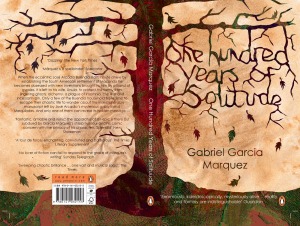 itude.
itude.
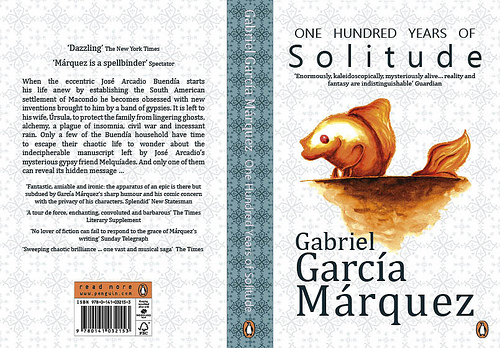
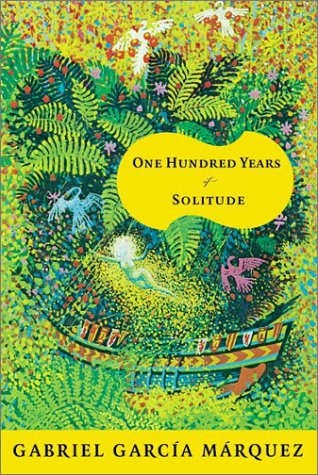
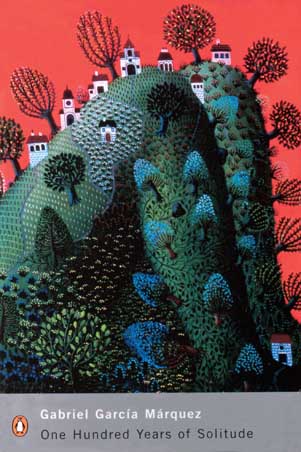

Going BovineLibba Bray
young adult
Bray knows her characters. The medley of sixteen year old underachiever/loser guy to talking garden gnome cast she creates is a fun romp to read through. Which is good because this is a looooooooooooong book. Very long. 480 pages long.
I know. I know. I sound like a griping teenager. The target audience. I wonder if the story has enough to keep them reading. I had a hard time remaining engaged.
While I enjoyed the imagination, the characters, the dialogue, the constantly changing setting, it was, ultimately, the leap of faith I was unable to take. At about the end of the first third of the book, when Cameron has already been hospitalized and is degenerating quickly - he's suffering from Creutzfeldt-Jacob (mad cow) disease, which is incurable and deadly. He sees an angel. Not just any angel. A punker angel. Okay, I'm still with you. The weird angel has appeared before in the distance. This might work. A punker angel named Dulcie.
Lost me.
We, as readers, sign a contract to take the leap of faith. To believe in the parameters of the story. Cameron's reality. It seems to incredible to be real. Sure enough, we come to discover in a
100 Years of Solitude sort of way toward the very end (and there are hints throughout that this might indeed be the case) that Cameron's been hallucinating/dreaming the last two weeks of his life. In other words, everything, including Dulcie, is a figment of his imagination. Yet his imagined life is far more alive and real than the 16 years of his life he more or less drifted through.
It's a great ending. Gabriel Garcia Marquez genius type of ending. But will the reader get there? We aren't in Latin American mysticism but modern day Texas. Realistic setting makes the leap hard. Dulcie makes the leap even harder. Granted, we're not supposed to take the leap in the end, we realize. It was a fantastical leap to begin with. One Cameron dreamed up. But because we do not know that right away, and because the fantastical keeps getting further and further out there, it's really hard to stay engaged, leaving the reader wondering, huh? What's the point? And, um, is it coming soon?
I hate not liking a book. I hate finding stuff wrong with the writing. There is no pleasure in it for me, especially with a book so close to greatness. Ultimately, it feels as though this piece lacked a stronger editorial pen. The right external input could have turned unbelievable into fantastical genius marvelous. We authors need editors. We really really do. No matter what stage of writing we are at. And we should never forget that. Because when we do, we are doomed to repeat our own mistakes without correction over and over and over again.
Read
Going Bovine for its characters. For its Garcia Marquez crafty twist on reality. But also to notice where the editorial pen would have helped. Could have tightened, condensed and lifted such promise to the next level of greatness.
For other great reads, hop over to our fearless leader's blog -
Barrie Summy Blog.
Happy reading!
 Random House Mondadori editor Cristobal Pera revealed that Nobel Literature Prize-winner Gabriel García Márquez is currently hard at work on a new novel. Some had worried he would never publish again.
Random House Mondadori editor Cristobal Pera revealed that Nobel Literature Prize-winner Gabriel García Márquez is currently hard at work on a new novel. Some had worried he would never publish again.
Yahoo! News reports: “The editor said Garcia, who was last seen in public two weeks ago in Mexico City, was busy completing his latest novel En agosto nos vemos, whose title in English means We’ll Meet in August and which awaits a publishing date.”
Today marks the release date of Márquez’s latest non-fiction book, I Didn’t Come to Give a Speech (Yo no vengo a decir un discurso). This work compiles 22 speeches Márquez had given from age 17 to the present. The book includes his 1982 acceptance speech for the Nobel prize, The Solitude of Latin America.
New Career Opportunities Daily: The best jobs in media.

The 55th episode of Seamour Sheep.
Much more Seamour 'n' Marty at Seamoursheep.com

The 54th Seamour episode.
More at Seamoursheep.com
 Yay here's episode 5: The Chosen One
Yay here's episode 5: The Chosen One
Check the Chocolate Log site for the full sized image: www.chocolate-log.com/story.html
 New Logger character, it's a Hippie Logger with cute flower hat meditating on a mountain. This guy is due to appear in the next episode of the Chocolate Log Story.
New Logger character, it's a Hippie Logger with cute flower hat meditating on a mountain. This guy is due to appear in the next episode of the Chocolate Log Story.
Click here to see the previous episodes
 New Logger character, it's a Hippie Logger with cute flower hat meditating on a mountain. This guy is due to appear in the next episode of the Chocolate Log Story.
New Logger character, it's a Hippie Logger with cute flower hat meditating on a mountain. This guy is due to appear in the next episode of the Chocolate Log Story.
Click here to see the previous episodes
 Yay here's episode 4: History Lesson
Yay here's episode 4: History Lesson
Check the Chocolate Log site for the full sized image: www.chocolate-log.com/story.html
 Yay here's episode 3: New Friends
Yay here's episode 3: New Friends
Check the Chocolate Log site for the full sized image: www.chocolate-log.com/story.html
 Yay, just upload the Chocolate Log story episode 2: The Awakening.
Yay, just upload the Chocolate Log story episode 2: The Awakening.
Just click on the image to visit Chocolate Log and see the full image.
 This one is an episode (the first one) from my webcomic about Chocolate Log.
This one is an episode (the first one) from my webcomic about Chocolate Log.
Anyway here's our site if you want to see more.
Peace out!

The next character to be introduced in the Seamour Sheep webcomic series.
 Hi Friends,
Hi Friends,
New super cute plush Chocolate Log toy from our webcomic, which is also called Chocolate Log is now available at our store.
This plush is limited edition collector’s item and is 100% hand made by the artist using top quality materials and tender loving care.
Visit our online http://chocolatelog.bigcartel.com/
 Hi Friends
Hi Friends
Finally my very first webcomic is now up and running. Its called Chocolate Log, so pop in and have a look.
http://www.chocolate-log.com/
See you there.
Onno Knuvers

Click for the ol' bigger image...



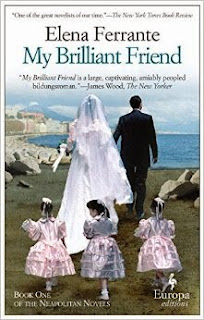








 Random House Mondadori editor
Random House Mondadori editor 











man your drawings make me hungry....they look so tasty..:D